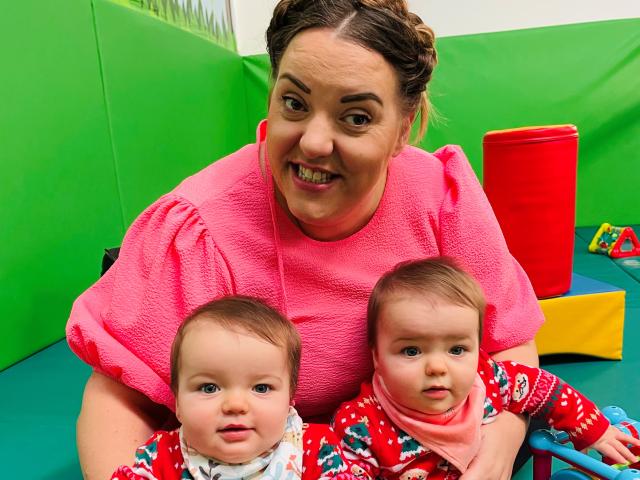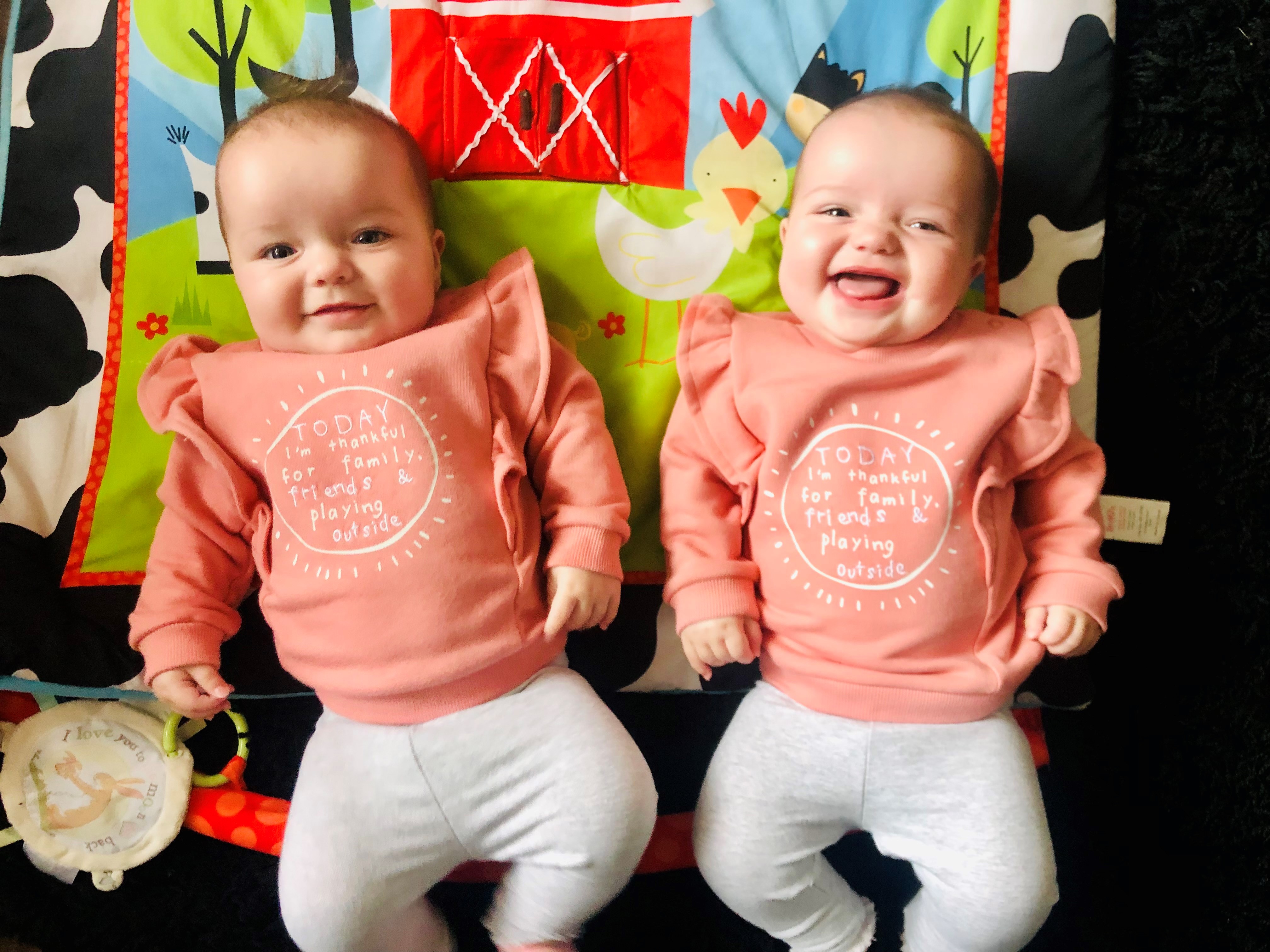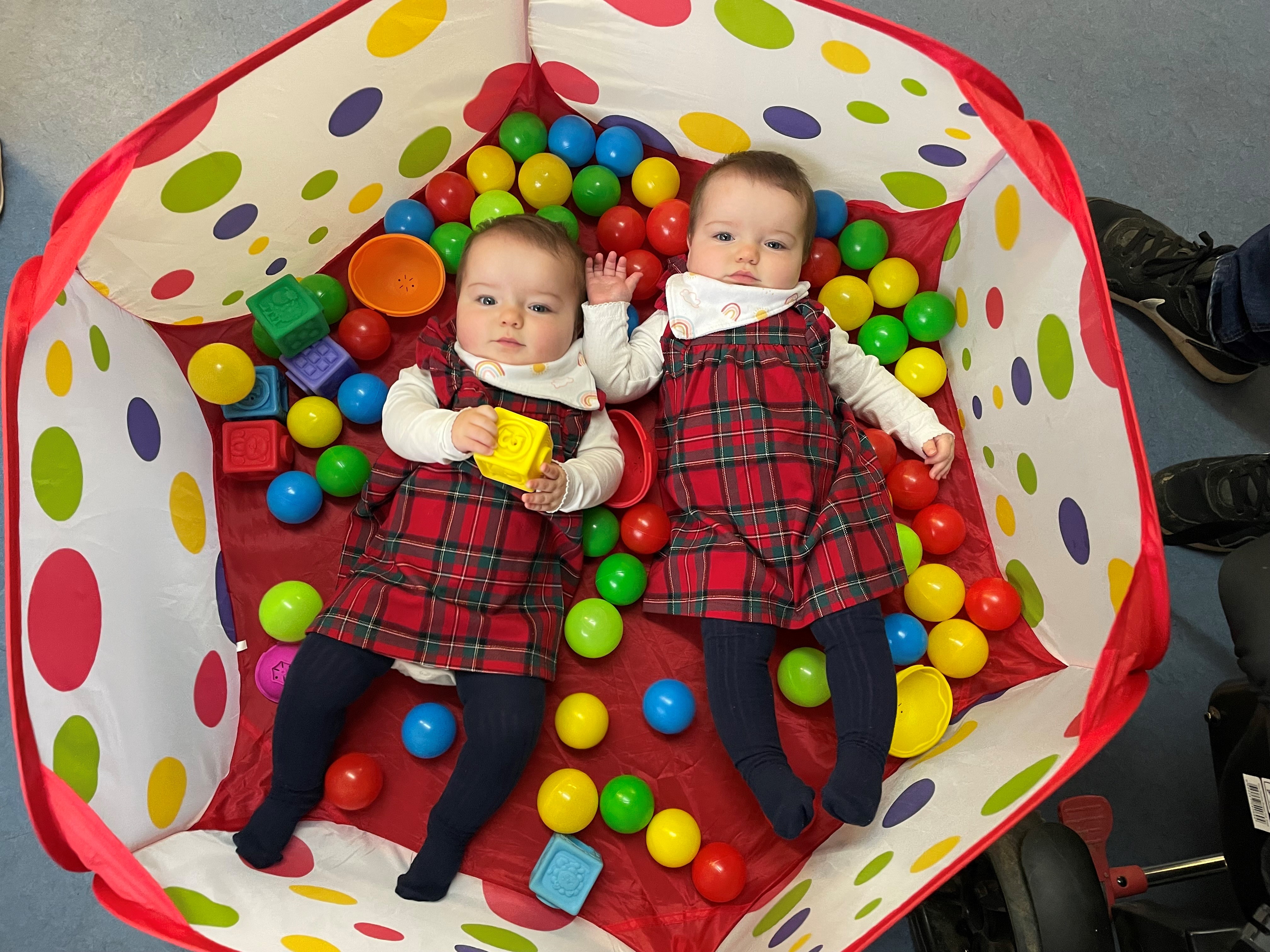
Cardiff mum hopes twins research can stop others feeling isolated
7 April
Cardiff mum Kirsty Evans is hoping research into the potential complications of having twins and triplets can help other parents like her from feeling so isolated.
The 36-year-old, from St Mellons, found out she was having a multiple pregnancy at her 12-week scan.
“It was a shock!” she laughed. “Although I suppose it shouldn’t have been, as my mum is a twin and it can often run in families.
“I was nervous when I found out I was having a multiple birth, as there are more risks associated. I didn’t have any friends who’d experienced what I was about to, and we were the only set of twins at my baby classes and support groups.
“There wasn’t anyone to bounce off for advice – when it comes to twins it’s a whole different ball game!”
Last year, Kirsty took part in the Evaluating Risk Antenatally in Twin Pregnancies (EARS) research project whilst pregnant with her daughters Mia and Isabel.

The EARS project was a UK-wide study run by Professor Alexander Heazell, Professor of Obstetrics and Director of the Tommy’s Research Centre in Manchester, aiming to discover risk factors in multiple pregnancy that can lead to babies becoming poorly before and after birth.
The research took place within several UK maternity units, including in the Cardiff Multiple Pregnancy Clinic, which cares for women with a twin or triplet pregnancy in the Cardiff and Vale area, and sees up to 100 women a year.
The clinic, established in 2011, is led by Dr Claire Francis and Dr Amy Robb, consultant obstetricians with an interest in multiple pregnancy, together with a team of specialist midwives and sonographers. The specialist midwife for the clinic is Mrs Denise Goodman and the clinic is supported by Mrs Maryanne Bray and her team of research midwives.
It was at her 12-week scan that Kirsty was approached by the research midwife at the Multiple Pregnancy Clinic.
“One of the research midwives came to speak to me in my first appointment about taking part in the EARS study. She explained everything to me and asked me if I’d like to be involved, and I did my first questionnaire there and then.
“Lots of the questions asked about pregnancy symptoms and behaviours, for example my sleeping habits.”
Multiple pregnancies account for 3% of babies worldwide. They are often more complicated pregnancies and births with increased risk of conditions for mothers such as heavy bleeding after birth, emergency caesarean section and pre-eclampsia.
Similarly, babies of multiple pregnancies also face more problems than those of singleton pregnancies, including growth restriction and preterm birth. Dr Amy Robb and Dr Claire Francis look forward to the study results and future collaborative working:
“It is so important to our mothers that we continue to better understand the risks associated with multiple pregnancy and how we may improve outcomes.
“To be part of the wider research picture has been valuable, and our team looks forward to the study results and future collaborative working.”

Kirsty was really keen to take part in the EARS project:
“If taking part in research can help other people, I am more than happy to do so. I wanted to help contribute evidence towards future mums facing the same experience as me.
“People having multiple births are often nervous as there are so many conditions and syndromes you would never have heard about before. The more information and research collected together, the better.
“I hope the study can help give more support and guidance to multiple pregnancy mums at what can be an isolating time.
“Overall, I had a wonderful experience in the Multiple Pregnancy clinic. The whole team were amazing. It was a really nice and supportive environment, a fantastic service.”
Professor Julia Sanders is Health and Care Research Wales Specialty Lead for Reproductive Health:
“There is still a lot we don’t know about best practice in midwifery care, especially for mums having a multiple birth. Research like the EARS project is vital in contributing important evidence so we know how best to advise women like Kirsty and keep her and her babies safe during pregnancy, child birth and postnatal care.”
The last babies on the project were born in September 2021, when analysis of the data began. The results of the study are expected to be complete by November 2022.
Find out more about the people behind the research and how Welsh research has changed lives.
To get the latest research news in Wales straight to your inbox, sign up for our weekly bulletin.